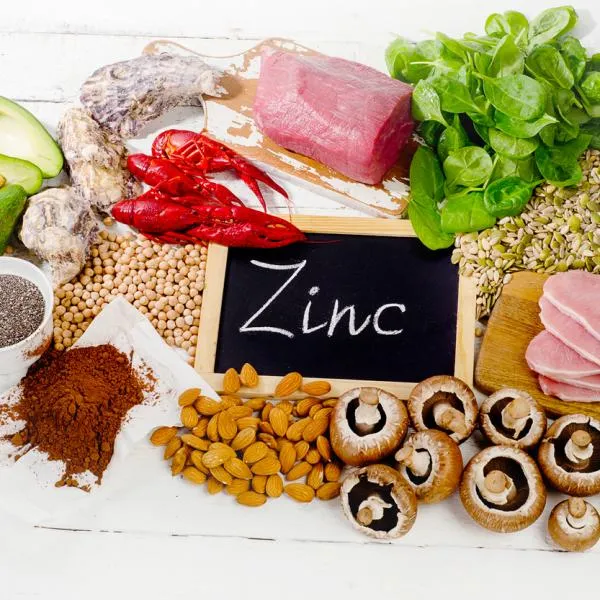
Source
Hello,
Zinc, what is it good for? Discover the benefits on the immune system
Nutrition plays an important role in our well-being. Zinc cannot be missing among the elements to take, here are its benefits.
During the winter season, we often get sick: lower temperatures, wind and rain can, in fact, cause colds, sore throats and flu. A balanced diet and an active lifestyle are important elements for keeping fit and fighting seasonal illnesses.
If these are not sufficient for the health and well-being of the body, the physician may prescribe food supplements based on Vitamin C and Zinc in association with Echinacea . While Echinacea supports the body's natural defenses and the functionality of the upper respiratory tract, Vitamin C and Zinc contribute to the normal functioning of the immune system and the protection of cells against oxidative stress.
But if you already know the benefits of Vitamin C, let's try to better understand what are the properties of Zinc and what is its use.
What is zinc?
Zinc ( Zn ) is a mineral present in the body in small quantities but it is an essential element for more than two hundred enzymes and many proteins. Zinc accumulates mainly in the cells of the muscles, bones, skin and liver and in the hair, but it is also present in the tissues of the brain and is necessary for the proper functioning of hormones, including insulin, growth hormone and sex hormones.
The total zinc content in the human body varies between 1.4 and 3 grams. The recommended daily dose to be taken is 15 mg; in women the requirement increases during lactation reaching 19 mg per day.
Benefits of zinc
But, what is zinc for? This mineral is essential for life and human health, thanks to its innumerable properties, in fact, it contributes:
to normal cognitive function;
to the normal synthesis of DNA;
to fertility and reproduction;
to the maintenance of normal bones, nails, hair and skin;
the maintenance of normal testosterone levels in the blood;
maintenance of vision.
In addition, among the main characteristics of Zinc is also the ability to contribute to the normal functioning of the immune system and the protection of cells against oxidative stress.
A zinc deficiency, therefore, can be the cause of multiple disorders in the body and is relatively widespread in the general population and especially in some conditions such as during growth, pregnancy or lactation. Zinc deficiency may also depend on insufficient or poor absorption as a consequence of a diet rich in cereals (phytates) but poor in protein, excessive alcohol intake or high urinary elimination.
Where is zinc found?
Our body absorbs only a percentage of the zinc present in food (the higher the intake, the lower the percentage absorbed). The main sources of zinc in the diet are animal products such as meat, fish, seafood, poultry, eggs and dairy products. Therefore, among the foods rich in Zinc we find:
oysters, crabs and shellfish;
liver of calves and bovine, ovine, equine;
whole grains, legumes and nuts;
pumpkin, sunflower and sesame seeds;
mushrooms;
bitter cocoa.
Among vegetables, pumpkin is an excellent source of Zinc. Be careful, however, the fibers contained in plants tend to reduce its absorption, so it could happen that those who follow a vegetarian or vegan diet need to take this mineral with supplements.
By: # @stefant2007